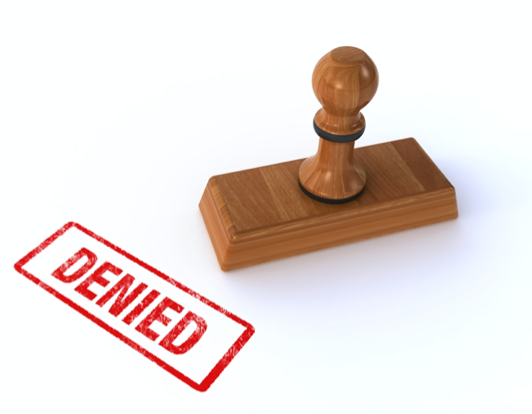It can be tremendously discouraging to hear that your long-term disability claim was denied and many people give up on the idea. However, it is important to know that claim denial is common and it’s important to follow a proper process to possibly change the decision.
In this blog we will go through the typical denial process and hopefully provide you with some key facts you need to know if you are considering an appeal.

It is highly recommended that you consult a personal injury lawyer as they know how to navigate through these procedures effectively without missing any deadlines.
Most people find out about their claim rejections through the “Denial Letter.” This letter is sent to you by the insurance company and is in response to your application. It highlights your case, provisions of your policy, the reason for denial, any back up information and a date when the letter was written. The date is an important point because it starts the timeline for your appeal.
There are a few reasons why your claim might be rejected. Common ones are:
- Insufficient documentation - your claim has to be supported by a medical professional. If the insurance company doesn't tell you exactly what's missing, make sure to clarify.
- Surveillance - the insurance company might have some video surveillance or social media "proof" that your claim might be not valid, however this proof can be limited or biased in nature and only show the good days.
- The insurance company claims you are not "totally disabled" and thus can do your job - this could be for a range of reasons, but it is important for you to emphasize that you might not be able to do the main or key duties of your job.
- Insurance medical doctor/consultant disputes your disability - it is very important that you continue to see your doctor or therapist through your whole disability and maintain your medical documentation. Your doctor who continuously follows you will be your biggest asset vs. someone who assessed you for an hour.
All of the above reasons can be contested through an appeal. One important factor that plays into success of your appeal is being diligent when it comes to deadlines. Missed deadlines are a common misstep that could be very costly. It is important to pay attention to dates (such as the Denial Letter) because you only have limited
time to make an appeal. Some insurance companies also use an Internal Appeal process as a stall tactic and it’s important for you to consult a lawyer before proceeding, as you might be able to skip this step and go straight to external appeal.
If you have been denied your benefits, you might still be able to turn the decision. At Eshel Law we have the experience and expertise when it comes to personal injury claims. We can simplify the process for you and advise you on next steps. We ensure you are legally protected and receive any compensation you are entitled to.
Contact us at: info@eshellaw.ca or visit our website to make an appointment: www.eshellaw.ca.


